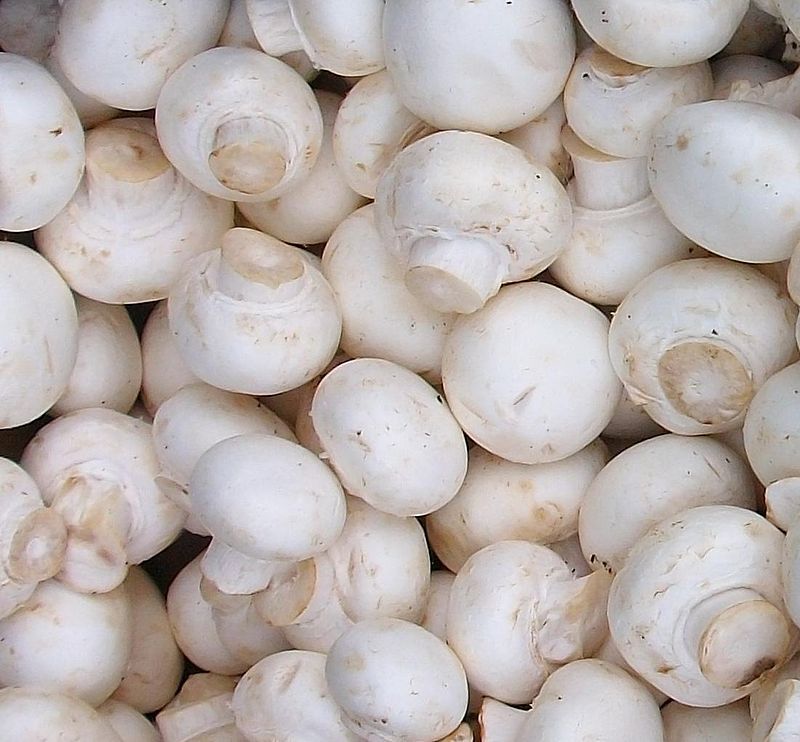
For the first time, a food crop altered using a genetic technique called CRISPR has been cleared by the U.S. Department of Agriculture.
Yinong Yang, a plant pathologist at Pennsylvania State University, used the technique on Agaricus bisporus, also known as the common white button mushroom. Yang inactivated a gene that produces an enzyme that causes the mushroom to turn brown after being cut into and left to sit out; without it, mushrooms stay fresh longer. Yang says this could lead to a longer shelf life for mushrooms and prevent tons of food waste, while saving time and effort.
The move highlights the murky regulatory category that organisms altered using CRISPR find themselves in. Since the 1990s, the USDA has been in charge of deciding whether or not to allow the sale of genetically modified crops with foreign DNA inserted into them, the rationale being that such genes might accidentally make their way into other plants or animals, or cause harm in the environment in some way. But CRISPR doesn't necessarily involve the insertion of one organism's DNA into another. The USDA sent a letter to Yang last week saying that the agency had cleared the mushroom because it "does not contain any introduced genetic material."
"Therefore, consistent with previous responses to similar letters of inquiry, APHIS [the USDA's Animal and Plant Health Inspection Service] does not consider CRISPR/Cas9-edited white button mushrooms...to be regulated," the agency wrote in the letter.
CRISPR has changed the way genetic modification is done over the past few years. It works by allowing scientists to cut DNA at a specific location in the genome and insert desired genes in that place. Compared with previous methods, it is much quicker and cheaper. But the speed with which CRISPR is advancing is already challenging the limits of regulation. As the USDA's response to Yang's button mushrooms shows, the agency doesn't believe CRISPR products fall under APHIS's regulatory scrutiny—leaving no federal regulator to actually check whether or not they might be a health or environmental threat.
By clearing the USDA, the mushroom is one step closer to reaching store shelves. But don't expect to find it for sale just yet—Yang told Science News he would also seek approval from the Food and Drug Administration, even though such approval isn't necessary, according to the publication, but just to make extra sure he's legally in the clear.
Uncommon Knowledge
Newsweek is committed to challenging conventional wisdom and finding connections in the search for common ground.
Newsweek is committed to challenging conventional wisdom and finding connections in the search for common ground.
About the writer
Douglas Main is a journalist who lives in New York City and whose writing has appeared in the New York ... Read more
To read how Newsweek uses AI as a newsroom tool, Click here.








